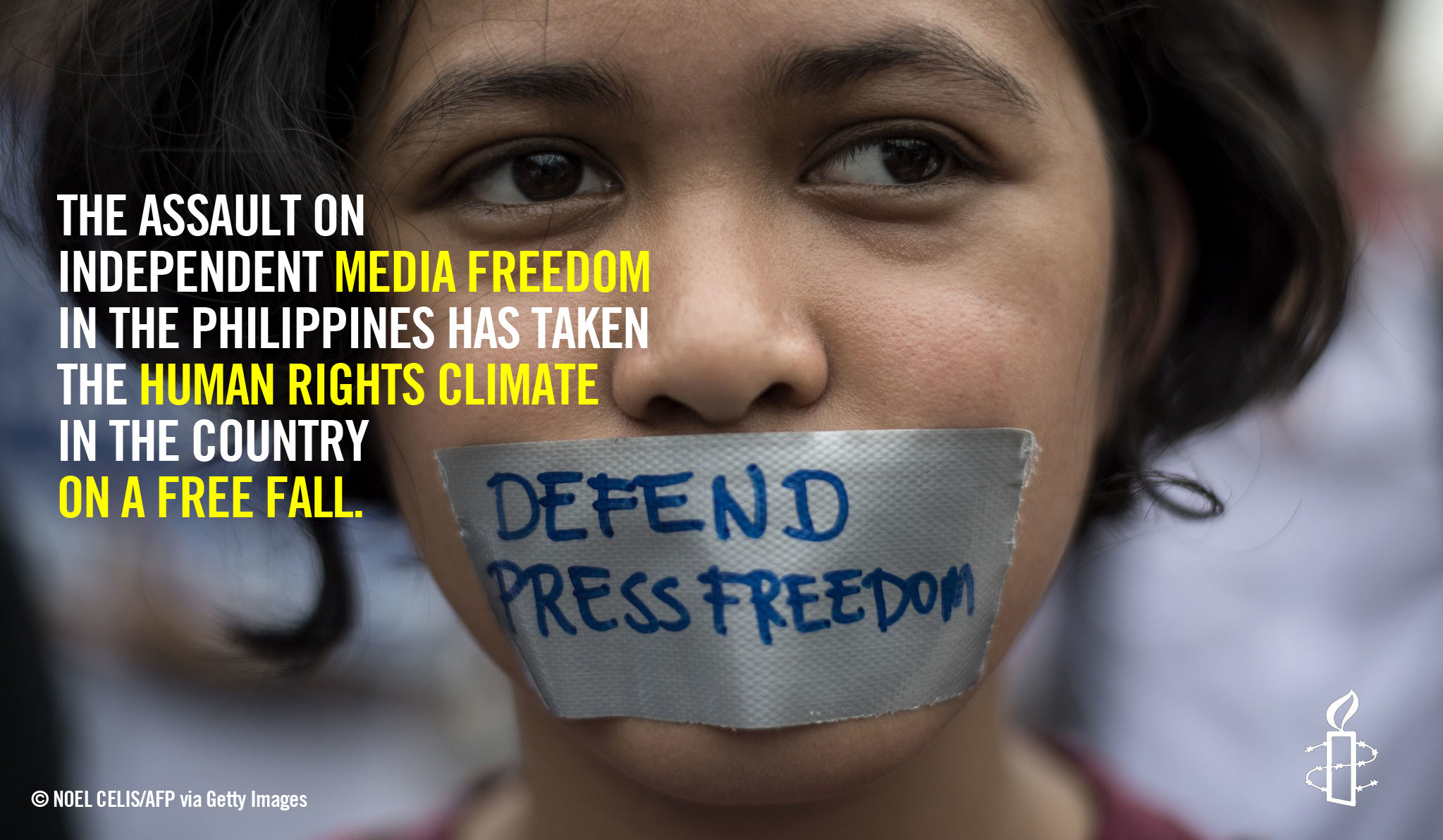Media Quote
Responding to the decision by the Court of Appeals to affirm the cyber libel conviction against Rappler’s Maria Ressa and Rey Santos, Jr, Amnesty International Philippines Activism and Mobilization Manager, Wilnor Papa, said:
“The worsening media repression in the country is on full display in the latest decision by the Court of Appeals to affirm Nobel laureate Maria Ressa’s cyber libel conviction, which comes less than a week after the Securities and Exchange Commission (SEC) upheld a closure order against her media outlet Rappler. These actions are an alarming turn in the government’s brazen targeting of independent media and dissenting voices from civil society. It also continues to send a chilling message on press freedom in the Philippines under a new administration.”
“Amnesty International, in its 8-point Human Rights Agenda released during the elections, called on winning candidates to repeal or substantially amend all laws unduly restricting the right to freedom of expression, including the Cybercrime Prevention Act of 2012. Cyber libel was regularly used to intimidate and harass journalists who report on critical national issues during the time of Duterte. We reiterate our call for the new government to immediately drop all charges against Ressa, and cease attacks against her Rappler, and independent media in general.”
“It is the government’s responsibility to ensure that members of the media are able to do their work – freely and without fear of attacks, threats, persecution or judicial harassment.”
Background
In a decision released 8 July, the Court of Appeals (CA) affirmed a Manila court’s conviction of Rappler CEO Maria Ressa and former researcher-writer Reynaldo Santos Jr. for cyber libel. In denying their appeal, the CA also lengthened the maximum prison time to up to six years, eight months and 20 days, with minimum imprisonment of six months and one day.
The case against the two stems from an investigative article by Santos, published on 29 May 2012. The article alleged that former Philippine Chief Justice Renato Corona used a vehicle owned by businessman William Keng, who had suspected links to illegal drugs and human trafficking.
On 13 February 2019, Ressa was arrested by the National Bureau of Investigation and detained overnight before being granted provisional release on bail, after the Department of Justice accused Ressa and Santos of “cyber libel” for the article. The article was published more than three months before the Cyber Libel Act was passed into law. The law should never have been applied retroactively, as the alleged offence was not a crime at the time it took place.
On 15 June 2020, a Manila court convicted both Ressa and Santos of cyber libel, becoming the first journalists in the Philippines convicted of the offence. The verdict carries a penalty of imprisonment ranging from six months and one day to six years. It orders Ressa and Santos to pay the complainant, Keng, a total of PhP 400,000 (USD 7,950) in damages. The court allowed the two to post bail.
Ressa, Santos and Rappler’s directors collectively face several other lawsuits and investigations, including alleged tax violations and violations of the prohibition against foreign control over mass media. Rappler has been a consistent critic of former President Rodrigo Duterte and his administration, publishing detailed investigations into some of the thousands of extrajudicial executions of poor and marginalized people committed by police and other unknown armed persons during ‘war on drugs’ operations.


